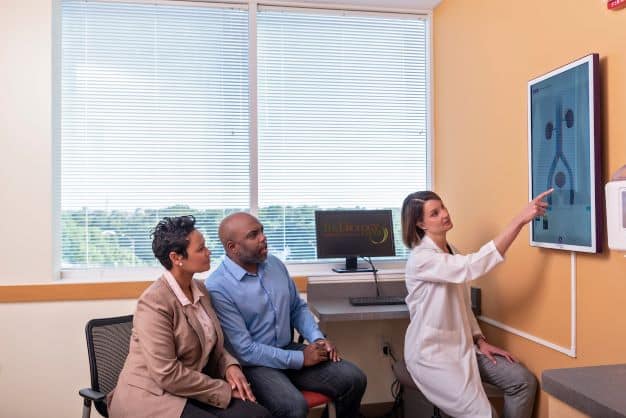Nocturia Keeping You Awake? 4 BPH Health Risks
Nocturia – the frequent need to pee at night – is among the most common symptoms of an enlarged prostate (BPH). Learn why it happens and what you can do to help.
Most people have had to pee in a cup as part of a regular health check, but what kinds of results would require the patient to see a specialist? And exactly what would that specialist do?

Meet your friendly urologist. Nearly 14,000 of us are practicing the United States, but that’s only about four specialists for every 100,000 people. This means most people do not see a urologist as frequently as they do their family physician, dentist, or even ophthalmologist. However, for a significant percentage of Americans, a urologist can be a major life enhancer, if not life saver.
What a Urologist Does: From Kidneys to Prostate
Urologists are specially trained to treat conditions of the male and female urinary tracts and reproductive organs.
This requires expert understanding of the following organs and body parts, from top to bottom:
Here’s When You Might Need a Urologist
The most common symptoms of urinary tract conditions involve changes in urination and the reproductive systems. However, when it comes to some conditions, a patient shouldn’t wait to experience symptoms. Here are four guidelines of when you may choose to see a urologist.
If You Can’t Wait to Pee, You Shouldn’t Wait to Schedule
As with most conditions, the earlier you treat a urologic condition, the better. If you plan to see a urologist, now is a good time to give us a call.
Virtual Assistant
I need help with ‘Billing Questions’
What number should I call to pay my bill?
If your bill is from The Urology Group, please call (513) 841-7474 to pay your bill.
If your bill is from The Urology Center, please call (513) 841-7475 to pay your bill.
If you would like us to call you to set up an appointment, please click here to request a call back.
If you would like to call us, please call
513-841-7400
to speak with a representative.
Our hours are:
Monday-Friday: 7:30am – 5:00pm
please call us at:
Our hours are:
Monday-Friday: 7:30am – 5:00pm
please call us at:
Our hours are:
Monday-Friday: 7:30am – 5:00pm
please call us at:
Our hours are:
Monday-Friday: 7:30am – 5:00pm
please call us at:
Our hours are:
Monday-Friday: 7:30am – 5:00pm